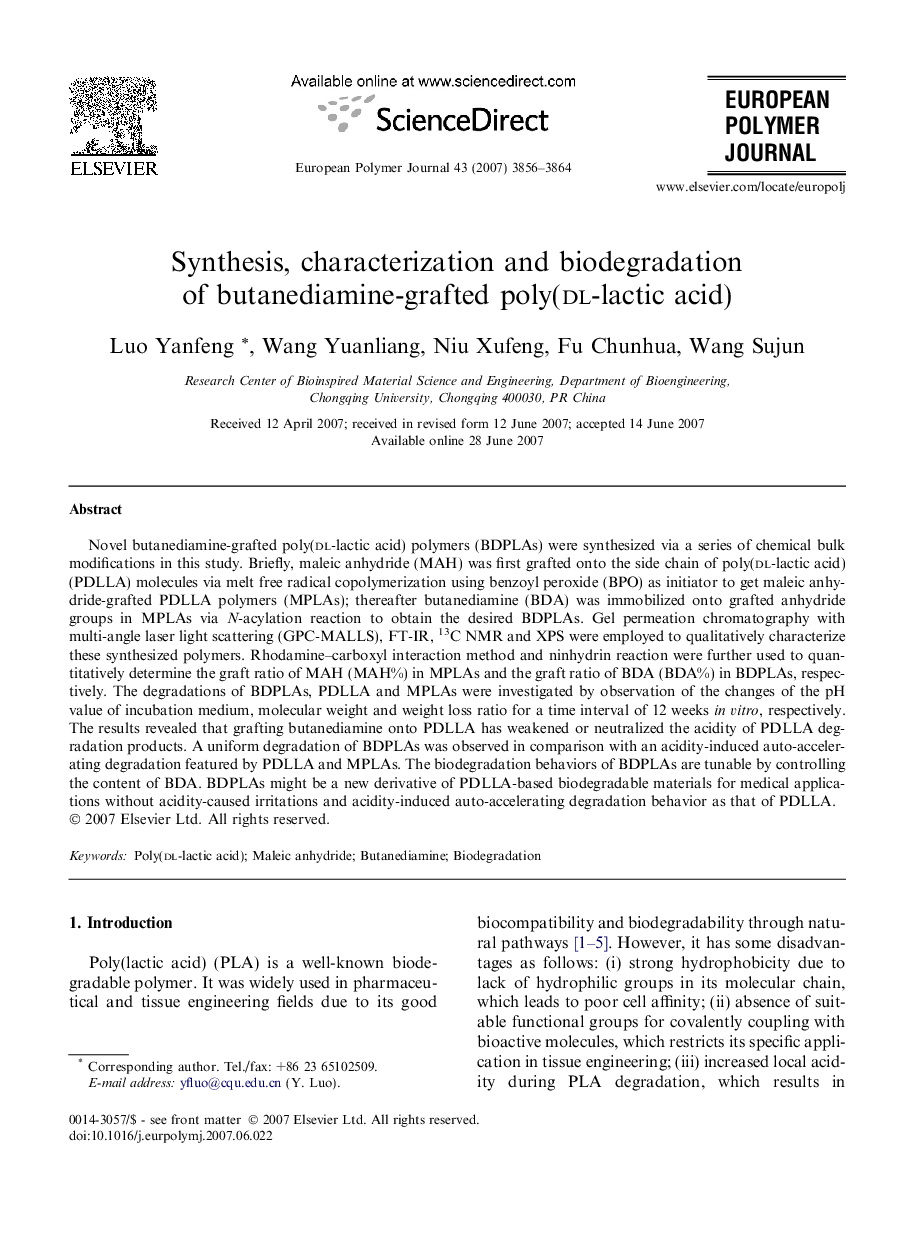| Article ID | Journal | Published Year | Pages | File Type |
|---|---|---|---|---|
| 1400174 | European Polymer Journal | 2007 | 9 Pages |
Novel butanediamine-grafted poly(dl-lactic acid) polymers (BDPLAs) were synthesized via a series of chemical bulk modifications in this study. Briefly, maleic anhydride (MAH) was first grafted onto the side chain of poly(dl-lactic acid) (PDLLA) molecules via melt free radical copolymerization using benzoyl peroxide (BPO) as initiator to get maleic anhydride-grafted PDLLA polymers (MPLAs); thereafter butanediamine (BDA) was immobilized onto grafted anhydride groups in MPLAs via N-acylation reaction to obtain the desired BDPLAs. Gel permeation chromatography with multi-angle laser light scattering (GPC-MALLS), FT-IR, 13C NMR and XPS were employed to qualitatively characterize these synthesized polymers. Rhodamine–carboxyl interaction method and ninhydrin reaction were further used to quantitatively determine the graft ratio of MAH (MAH%) in MPLAs and the graft ratio of BDA (BDA%) in BDPLAs, respectively. The degradations of BDPLAs, PDLLA and MPLAs were investigated by observation of the changes of the pH value of incubation medium, molecular weight and weight loss ratio for a time interval of 12 weeks in vitro, respectively. The results revealed that grafting butanediamine onto PDLLA has weakened or neutralized the acidity of PDLLA degradation products. A uniform degradation of BDPLAs was observed in comparison with an acidity-induced auto-accelerating degradation featured by PDLLA and MPLAs. The biodegradation behaviors of BDPLAs are tunable by controlling the content of BDA. BDPLAs might be a new derivative of PDLLA-based biodegradable materials for medical applications without acidity-caused irritations and acidity-induced auto-accelerating degradation behavior as that of PDLLA.
